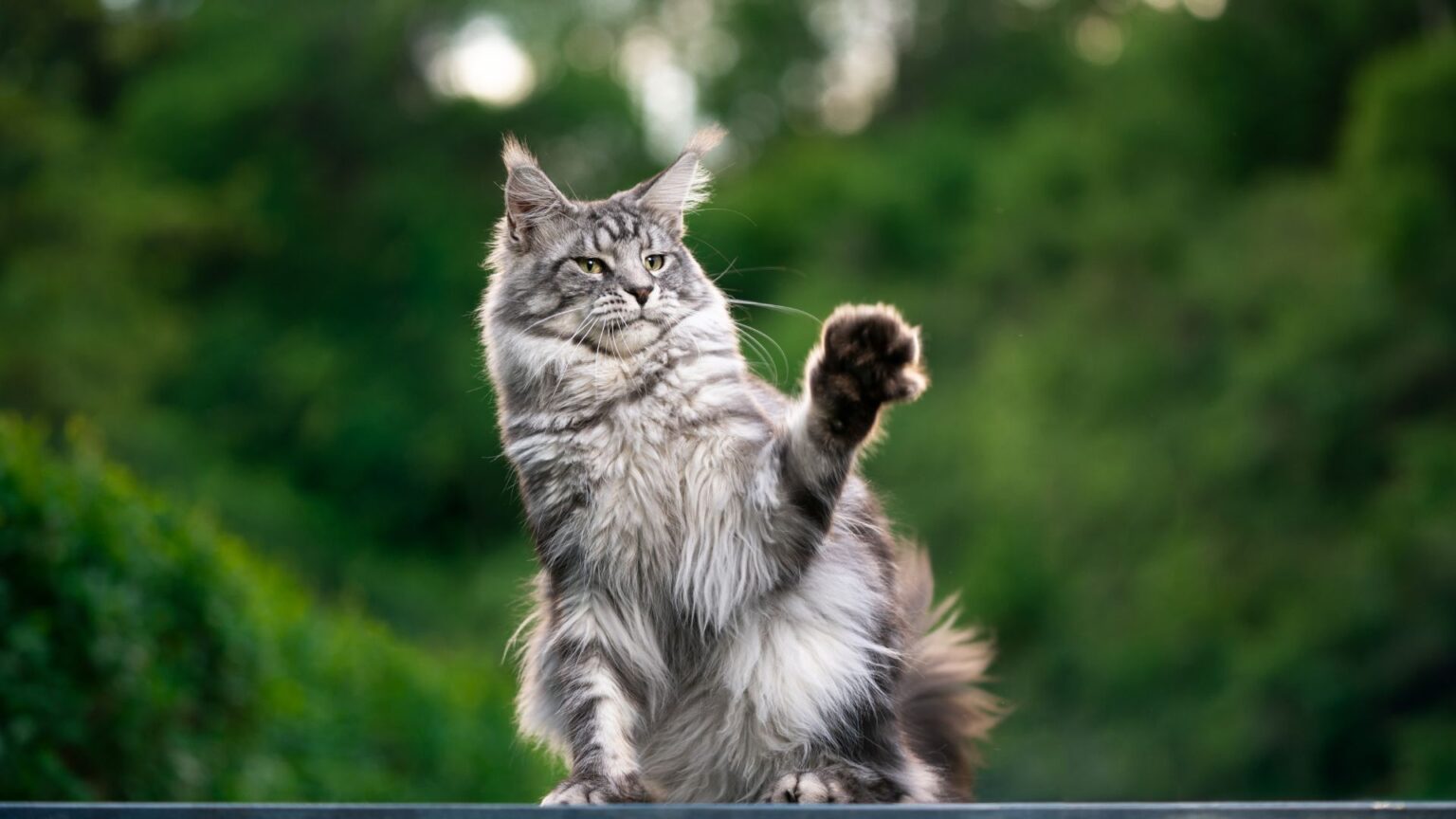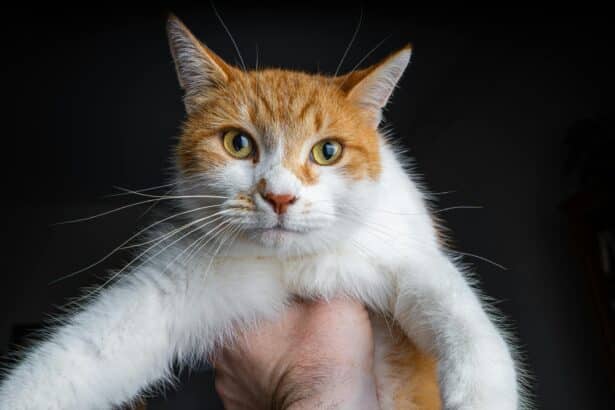The Maine Coon is an exceptional cat, characterized by its large size, robustness and sociable nature. This ultimate guide aims to provide you with all the information you need if you’re considering adopting a Maine Coon, or if you’re looking to better understand and meet your Maine Coon’s specific needs. This cat breed has a lot to offer, with its warm personality and seductive independence.
Learn more about the Maine Coon breed
Origins and history of the Maine Coon
No one knows exactly where the Maine Coon came from. Several legends surround its birth, but the most plausible is that the Maine Coon owes its existence to cross-breeding between foreign longhairs and local North American shorthairs. Whatever their true heritage, the Maine Coon has quickly become one of America’s favorite cat breeds, known for its large size and friendly nature. The mystery surrounding their origins even adds to their captivating allure.
Maine Coon physical characteristics
The Maine Coon is one of the largest breeds of domestic cat, distinguished by its imposing stature and its weight reaching up to 10kg for some males. Distinctive features of this breed include a bushy tail, which is often as long as the cat’s body itself, and a thick, hard-wearing coat that has been developed to withstand harsh winters. Its ears are large and broad at the base, with tips crowned with tufts of hair reminiscent of those found on lynxes. The eyes are large, set wide apart and can be of different colors. However, gold is the most common color.
Maine Coon temperament and behavior
Contrary to what their large size might suggest, Maine Coons are often described as “gentle giants”. They are generally known for their affectionate, sociable nature. Although there may be individual variations, most Maine Coons are very sociable and enjoy spending time with their human family. They can also be independent and enjoy their own space. They’re known to be very playful and can sometimes seem a little clumsy or boisterous in their games, but that’s part of their charm.
Preparing to adopt a Maine Coon
Choosing the right Maine Coon breeder
It’s essential to choose a good breeder when adopting a Maine Coon. You want to make sure you adopt a healthy cat, and the best way to do that is to choose a breeder who puts the health and well-being of his cats first. Make sure that cats are well socialized, and that the breeder carries out genetic testing to eliminate common hereditary diseases. The living conditions of the parents are also essential. Choosing a good cat cattery requires time and research. Not only are you looking for healthy cats, you’re also looking for a breeder who really cares about his cats.
Preparing the home for the Maine Coon
To welcome a Maine Coon, your home must be well prepared. Consider the following aspects: first,
you need a large litter box, as they are larger than most other cat breeds. Next, you’ll need a cat tree strong enough to support their weight and allow them to claw and climb on it. What’s more, they need plenty of space to move around: don’t confine them to a small room, even if they’re indoor cats.
Caring for a Maine Coon
Maine Coon dietary requirements
Because of their large size, Maine Coons have specific dietary needs that are important to understand and meet. A high-quality protein-rich food is needed to support their muscle mass without causing unwanted weight gain. The diet must be well-balanced, including essential vitamins and minerals, with particular attention paid to taurine, an essential amino acid for cats.
Physical activity and mental commitment
To maintain their mental and physical health, Maine Coons need regular stimulation. They are very playful cats who enjoy interactive games, especially those that stimulate their natural hunting instincts. Cat toys that mimic the movement of prey, such as balls and moving mice, are generally well appreciated. What’s more, they also require mental stimulation, which you can provide by interacting with them, teaching them tricks, or even simply offering them a vantage point from which to watch the outside world.
Maine Coon grooming and hygiene
Because of their thick fur, Maine Coons need regular grooming to avoid knots and pilling. This means daily brushing and occasional bathing. Also, don’t neglect their ears: due to their shape and size, they can accumulate dirt and debris, which can lead to health problems if not regularly cleaned.
Maine Coon health and common problems
Common health problems in the Maine Coon breed
Unfortunately, like many purebred cats, the Maine Coon is susceptible to certain breed-specific diseases. Common health problems in the Maine Coon include hypertrophic cardiomyopathy (a heart disease), hip dysplasia (a malformation of the hip joint), and spinal muscular atrophy (a genetic disease that affects muscle control). So it’s crucial for any Maine Coon owner to be aware of these potential problems and keep a close eye on their cat.
Conclusion
Adopting and raising a Maine Coon is an incredible adventure. This cat breed is exceptional in many ways, and while owning a Maine Coon may require a commitment of time and resources, the return in affection, loyalty and companionship these cats offer is incomparable. Every day spent with a Maine Coon is another chance to make precious memories. We hope this guide will help you better understand your Maine Coon cats and enrich your bond with them.




